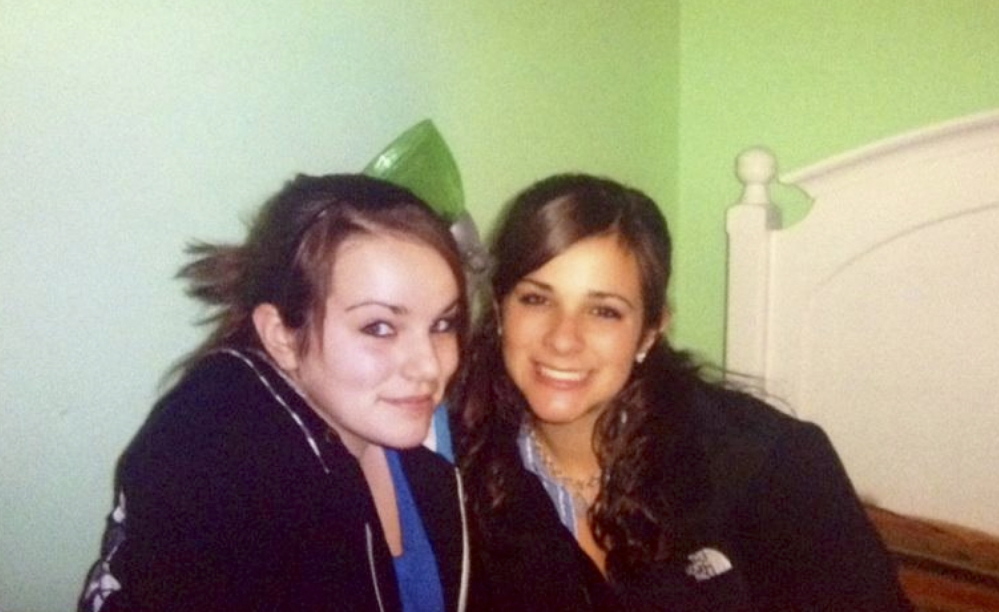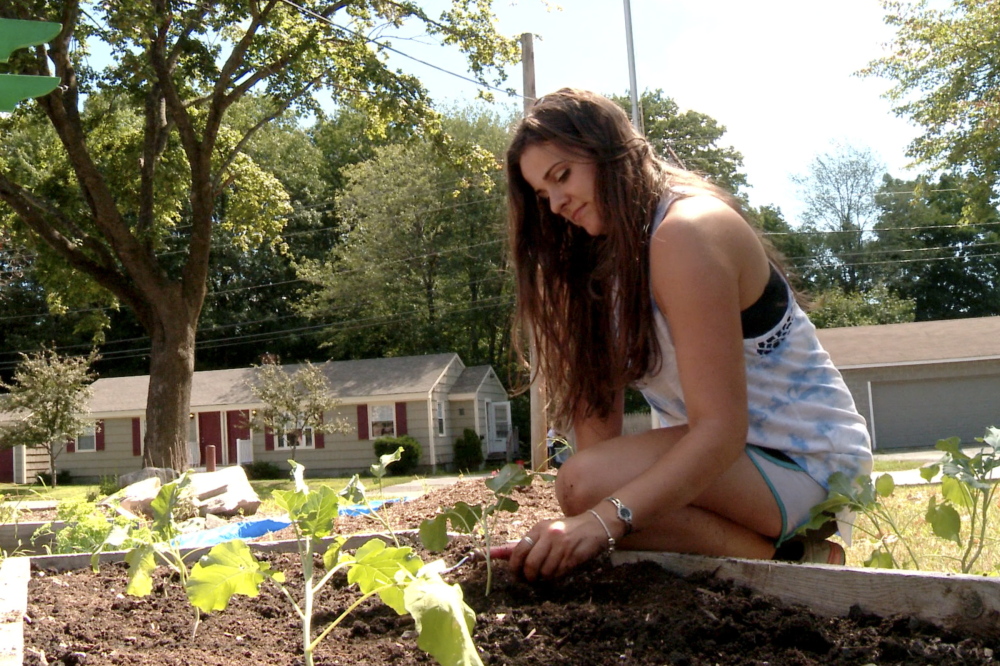Rachel Remillard kneels next to a raised garden bed at Wayside Food Programs and gently works compost into the soil, her slim fingers stained a dark brown, the silver bangles on her wrists glinting in the sun.
Remillard, 23, has spent countless hours this spring and summer planting, weeding and harvesting the vegetables that Wayside grows as part of its mission to provide food for more than 40 agencies in Cumberland County, including food pantries, soup kitchens and shelters. She started volunteering last year when she was living in a sober house nearby and noticed people working in the garden.
“I just wandered over here,” she says, “and I was like, ‘What are you guys doing?’ ”
Within a few weeks, Remillard, who had never gardened before, was one of the Portland nonprofit’s most dedicated volunteers.
“We’d get in between 6:30 and 7 in the morning,” says Wayside’s operations manager, Don Morrison, “and sometimes she’d be out there weeding already. Or she’d already have come and gone and I could tell the gardens had already been watered.”
For Remillard, it’s a daily reminder of the patience and acceptance that are keys to her recovery from what she describes as a “vicious addiction” to heroin.
“I always wanted to control everything, but with gardening you can’t control what a living thing does,” she says. “I can’t control the plants. I can’t control the weather.”
Remillard, an honor roll student who grew up in a small town in Massachusetts, started experimenting with drugs when she was 15.
“Right off the bat, I think, there was something different about the way I used drugs and (the way) other people did,” she says. “I take something, and I want more and more. There’s no end.”
She quickly escalated to abusing a laundry list of prescription pills: Adderall, Percocet, OxyContin.
“I felt like without drugs I’m just this anxious, worried, insecure person. But when I took those drugs, I was free. I could be social and calm and OK with myself.”
But there was one drug she swore she’d never use.
“Friends of mine had started doing heroin, and it just seemed so awful, Remillard says. “You say ‘heroin’ and it’s like, oh my God, that sounds so intense. But these prescription medications are the same thing. It’s literally like a ticking time bomb until you start doing heroin.”
That time bomb detonated in her life during her sophomore year in college.
“Within two weeks (of trying heroin for the first time) I was shooting it all the time,” she says. “I’d get high in the morning, and for the rest of the day I’m chasing it.”
Her studies, her family – everything she cared about fell away.
“No amount of love, no amount of fear, nothing could get in the way of me and my obsession with drugs,” Remillard says. Not even the death of her beloved younger sister, Cindy, in 2012 – from a heroin overdose.
“We were so close. I couldn’t imagine my life without her,” Remillard says. “She was the only one in my family who knew what was wrong with me and knew what I was really doing.”
Her parents and two brothers were stunned with grief. Rachel numbed the pain with the same drug that killed her sister.
“I couldn’t be there for my family (even though) I could see the pain in my brothers’ eyes,” she says. “I’d be crying, but I’d be on my way to my drug dealer’s house. I’m getting high and I can’t stop.”
Eighteen months later, her life in ruins, she called her parents and asked for help.
“I was so hopeless,” she says. “I didn’t want to die because I didn’t want to do that to my family. But I didn’t want to live either.”
After a stint in rehab, she moved to a sober house in Portland, got a job waitressing and began the work of rebuilding her life.
In May, she earned her certification as a master gardener.
“I needed something to bring me pleasure,” she says, “and I found it in gardening.”
Remillard’s dream is to work with children to teach them about gardening and the importance of healthy food – and a healthy lifestyle.
And she’ll continue to support other addicts in recovery. She knows it’s a journey that she herself can never take for granted.
“I’m a drug addict. Relapse is always a risk,” she says. “I have work to do every day to be a better person so that I feel good about myself and don’t go back to filling that void with drugs.”
Send questions/comments to the editors.




Success. Please wait for the page to reload. If the page does not reload within 5 seconds, please refresh the page.
Enter your email and password to access comments.
Hi, to comment on stories you must . This profile is in addition to your subscription and website login.
Already have a commenting profile? .
Invalid username/password.
Please check your email to confirm and complete your registration.
Only subscribers are eligible to post comments. Please subscribe or login first for digital access. Here’s why.
Use the form below to reset your password. When you've submitted your account email, we will send an email with a reset code.